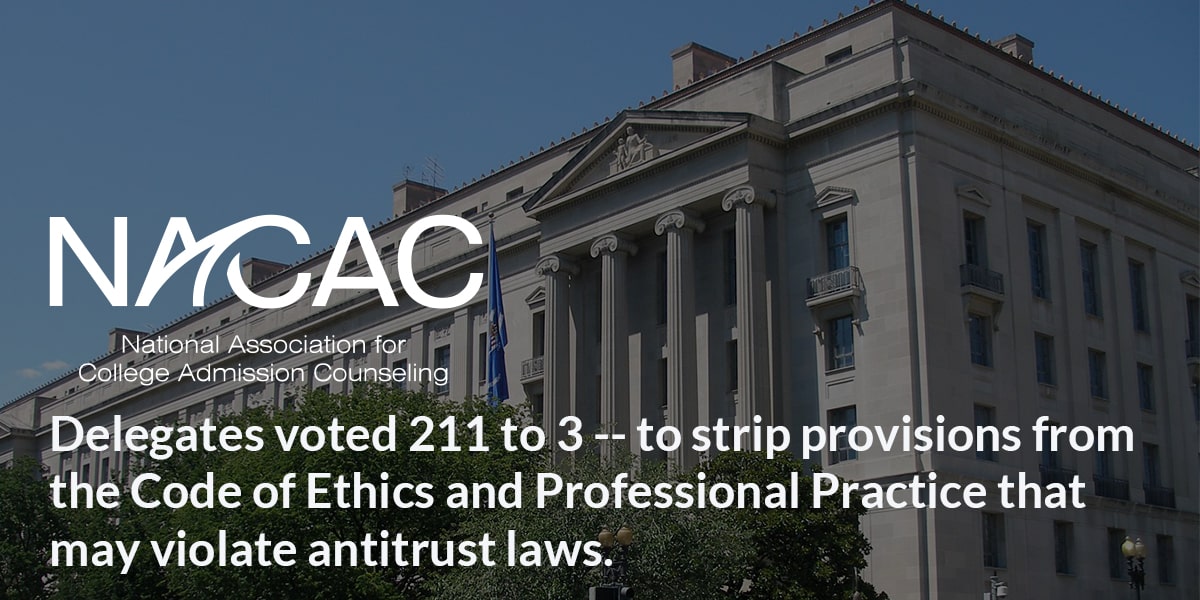Just this 2019, the National Association for College Admission Counseling (NACAC) imposed new college admissions policies for the next academic year.
College admission policies for 2020
Just recently, the NACAC made some huge changes in terms of college admission policies.
The most significant changes made by the association are directed to the Code of Ethics and Professional Practices (CEPP).
- During the early decision season, colleges are now allowed to offer incentives, financial aid packages, or any other benefits that can entice applicants or student-athletes.
- Applicants with an initial deposit into another institution can still be recruited by another university.
- Convince former and current student prospects to transfer to their institution
With the following changes being implemented, the competition among colleges is expected to spike. College admission deadlines will now become irrelevant.
Motivation for the change
Around two years ago, the Department of Justice investigated with regards to NACAC’s CEPP. The DOJ believed that the restriction handed out to schools on recruitments past May 1 might lead to missed opportunities for students in availing lower-cost education.
Despite the objections made by NACAC, they are left with nothing but to abide by the court ruling or else jeopardize the whole organization. The organization then decided to fix the issue internally to prevent it from reaching into a legal proceeding.
Early acceptance. With the recent provisions in the college admission policies, students get additional benefits from applying and committing early to a university of choice. Aside from the usual high acceptance rate, early pickers can gain other benefits like exercising their freedom of choosing their housing and class schedules, tuition subsidies, and possible work to cash programs.
Enrollment deposits. Securing a spot in a university still requires a monetary deposit. But with the new guidelines on allowing recruitment past May 1, schools can entice students to transfer universities by offering great discounts and financial packages ven after the supposed to deadline. We might see some universities increasing their minimum acceptance deposits to make early applicants doubtful of transferring and leaving their deposits behind.
Beneficiary. This move by the DOJ was a student-centered decision. This way, students are being protected on their freedom to choose the institution they feel like fitting in. New college admission policies also open the possibility of allowing more college financial packages for those students who are willing to wait for the full length of the acceptance process. As the end of the acceptance closes on, bigger tuition discounts are being handed out, and this is the opportunity that low-income families won’t consider turning down.
Feature image by ACCFS







